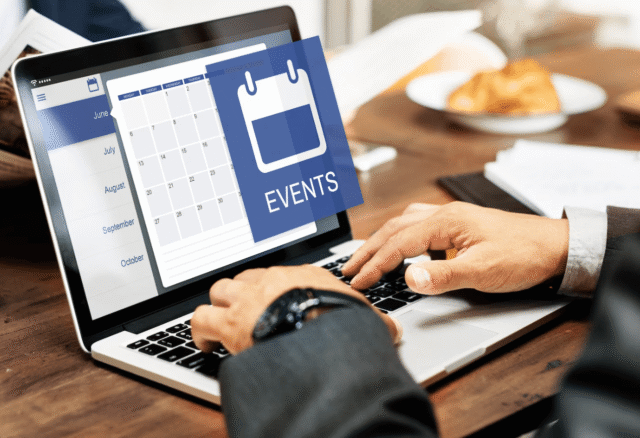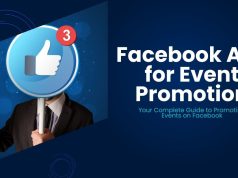When it comes to planning a successful event, Marketing plays a pivotal role in creating buzz to attract attendees and ensure the event leaves a good impression. But who is responsible for the design of the most important part of this process –market strategy? Is it an event manager (who surely needs help from outside sources); the branding team? Or some combination between these two roles and other members of staff working in other departments that work together on particular events all year round? The answer isn’t always so simple since one event can range from small corporate gatherings to huge international festivals.
Why Event Marketing is Crucial
For any successful event, there is usually a backbone but it is often the marketing arm. It dictates how an event will be presented; which segmented audiences can be reached; and specifically just what proportion may become converts by attending. A pithy marketing strategy means that your event does not get lost in the crowd of a crowded bazaar. It builds word-of-mouth not just for ticket sales, but also to reinforce brand image and guest experience.
But marketing does not arrive out of thin air. It will need preparation, cooperation and expertise from a number of different sources.
Key Players in Event Marketing
While the team structure for event marketing can vary depending on the size and scale of the event, there are several key roles involved in plotting the strategy. Here’s a breakdown of who typically takes charge and contributes to marketing an event.
1. The Event Manager
At the helm of any event is often the event manager, who oversees the entire operation, including marketing. While they may not be directly responsible for executing marketing tasks, they play a critical role in approving the overall strategy and ensuring it aligns with the event’s broader goals.
Key Contributions of an Event Manager:
- Define the purpose and objectives of the event.
- Approve audience targets, tone, and promotional tactics.
- Act as the liaison between different departments to ensure all efforts are cohesive.
2. The Marketing Manager
The marketing manager is the linchpin of the event’s promotional success. Working closely with the event manager, their role is to develop, implement, and refine the marketing strategy. They often have a pulse on all aspects of the campaign, from audience segmentation to content creation.
Key Responsibilities Include:
- Creating the event’s marketing plan and budget.
- Overseeing advertising campaigns (both paid and organic).
- Collaborating with graphic designers to ensure promotional materials align with the brand.
- Tracking KPIs to gauge the success of marketing efforts in real-time.
3. Content Marketers
Content plays a vital role in catching attention and converting potential attendees. Content marketers within the team are responsible for crafting compelling narratives, creating shareable posts, and optimizing written materials for SEO.
Content Marketer Deliverables:
- Writing engaging blog content about the event highlights.
- Producing email sequences to nurture potential attendees.
- Generating targeted landing page copy to improve ticket sales.
- Creating social media captions and ad copy crafted to engage your target audience.
4. Social Media Specialists
Social media is often the first touchpoint between an event and its prospective attendees. Social media specialists are tasked with promoting the event across all relevant platforms, generating excitement, and building a community around the occasion.
How Social Media Specialists Plot Success:
- Manage campaigns on platforms like Instagram, LinkedIn, and Facebook.
- Engage with followers through comments, shares, and live Q&A sessions.
- Schedule posts and ensure consistent branding.
- Leverage user-generated content to boost organic reach.
5. Designers and Branding Experts
The visual elements of your event can make or break first impressions. Designers are crucial players responsible for developing an aesthetic that resonates with your audience. A recognizable branding campaign helps the event stand out and improves recall.
Designers’ Core Contributions Include:
- Creating event logos, banners, and graphics.
- Designing eye-catching flyers, posters, and social media visuals.
- Developing consistent branding for both digital and offline materials like signage and swag.
6. Public Relations Specialists
While advertising focuses on paid promotions, public relations (PR) ensures that the event is the talk of the town through media attention and organic exposure. PR specialists craft press releases, foster relationships with journalists, and identify opportunities to get the event in relevant publications.
Main PR Activities:
- Writing compelling press announcements.
- Partnering with influencers and media outlets for coverage.
- Arranging for interviews or featured articles in blogs and magazines.
- Handling crisis communication if issues arise before or during the event.
7. Digital Marketing Experts
Digital marketers, specialized in areas like SEO, paid ads, and website management, play an essential role in ensuring the event gets maximum online visibility. They use data-driven techniques to bring in leads and direct traffic to your event pages.
What Digital Marketers Focus On:
- Running PPC campaigns on platforms like Google Ads.
- Conducting keyword optimization to drive SEO traffic.
- Retargeting website visitors with display ads.
- Creating conversion-focused landing pages for easy registrations.
8. Analytics and Data Specialists
No event marketing campaign is complete without measuring success. Analytics teams track KPIs to ensure that the campaign is meeting its goals. Using these insights, they refine efforts in real-time to ensure as many attendees as possible.
What They Track:
- Marketing conversion rates (e.g., email clicks, ticket sales).
- Website bounce rates and time on page.
- Engagement metrics on social media.
- Sources of traffic and cost per attendee acquisition.
Collaboration is Key
Each player has a definitive role assigned to it, it is only when all the players come together and displays this that the real magic happens. Regular meetings of the entire team see that all are of one mind. From brainstorming campaign ideas to setting deadlines and examining data, communication is critical both in crafting a strong marketing strategy and using it to maximum effect.
Moreover, in countless businesses of the modern era, teams increasingly rely on ever more sophisticated applications for communication and project management: for example, Trello or Monday.com. And CRM platforms such as HubSpot help to make managing tasks simpler yet more efficient.
Getting it Right with the Right Team
Build an Effective Marketing Strategy No Matter the Size Form large-scale conferences to smaller scale networkings it is essential to start out with a proper marketing strategy for success. A coherent and collaborative team ensures that your event reaches the audience it needs to hit, stands out in the best possible way and achieves all its goals.
Want to take your event’s marketing to the next level? Contact us today to ask out our services or browse now.









